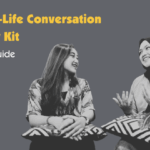What is an Advance Statement
An Advanced Decision is a functional document that only sets out what you refuse to accept. An Advance Statement is different, and if you’re doing one, you should definitely do the other, so they can work together. An Advance Statement covers any future health or social care issues that you anticipate, and how you want your care to incorporate your preferences, religious or spiritual beliefs, and so on. Would you prefer to be cared for at home with family, a nursing home, or in a hospice? What are your favourite foods, or preferred washing routines? If you have a pet, who would you like to look after them? These are the sort of practical and personal details that will help people make decisions on your behalf, to make sure that what happens is in keeping with how you’d want it.
Who can make an Advance Statement
Like the Advanced Decision, an Advance Statement can be made by anyone with the mental capacity to do so. It’s also worth discussing it with your loved ones and any medical / social care professionals you’re working with so that they know how best to incorporate it into future decisions about your welfare. Once it’s in place, an Advance Statement serves as a reference guide for those involved in your care and treatment, steering them on courses of action that take into account your personal beliefs, wishes and preferences. (In making a decision on your behalf, others must legally be acting in your best interests, and in making those decisions, they have to consider your feelings, and what beliefs or values would have influenced those feelings. An Advance Statement sets those things out clearly, and helps make those decisions easier.
How do you make a Advance Statement
An Advance Statement is not a legally binding document, but it absolutely must be considered by those who are making decisions on your behalf, and if it’s written down then it can’t be called into question later on. Unlike the Advanced Decision, it doesn’t need to be signed or witnessed (although a signature is a good idea), but it should be discussed with those around you so they can help you make sure it’s thorough, and you can help them know how to approach the decisions ahead.
What to include:
Think about your favourite things – you could start by making some personal top 10 lists for TV shows, films, or meals. What are your favourite clothes? Are there religious or political values that are important to you, or things that you’re not in favour of? An Advance Statement ultimately helps professionals get to know you a little better, so they can use it to make decisions that you will be happy with, or that are in line with what you would have done if you were able. Be specific, even if it seems mundane – is there a deodorant that you routinely use? Are you a quick shower or a long bath person? Little details like this will ensure that you don’t lose the day-to-day familiarities that make life seem normal even when it isn’t.
Comparison
Advance Statement – Here are a lot of things you should know about me – things I like, and how I like things to be. It’s not legally binding, but it will help you make decisions about my medical treatment and also about other aspects of my social care and welfare. My loved ones should know about it and will be able to feed into to too.
Advanced Decision – Here’s a valid and legally binding document that has been signed and witnessed which gives specific instructions as to which medical treatments I DO NOT want, and the specific circumstances required for those instructions to apply. All medical staff involved in my care should be aware of it and have copies, as should my loved ones.
Power of Attorney – There are two types, but in this case we’re referring to a Lasting Power of Attorney for Health and Welfare. This specific legal document gives a person who I trust the power to make decisions on my behalf in case my condition / illness means that I can’t make them for myself. It can have restrictions, or can work alongside an Advanced Decision on issues around life-saving / life-sustaining treatment, but can also cover decisions about what type of care I’ll receive, where I’ll be cared for, and how my day-to-day life works.
Resources:
https://www.nhs.uk/conditions/end-of-life-care/advance-statement/



